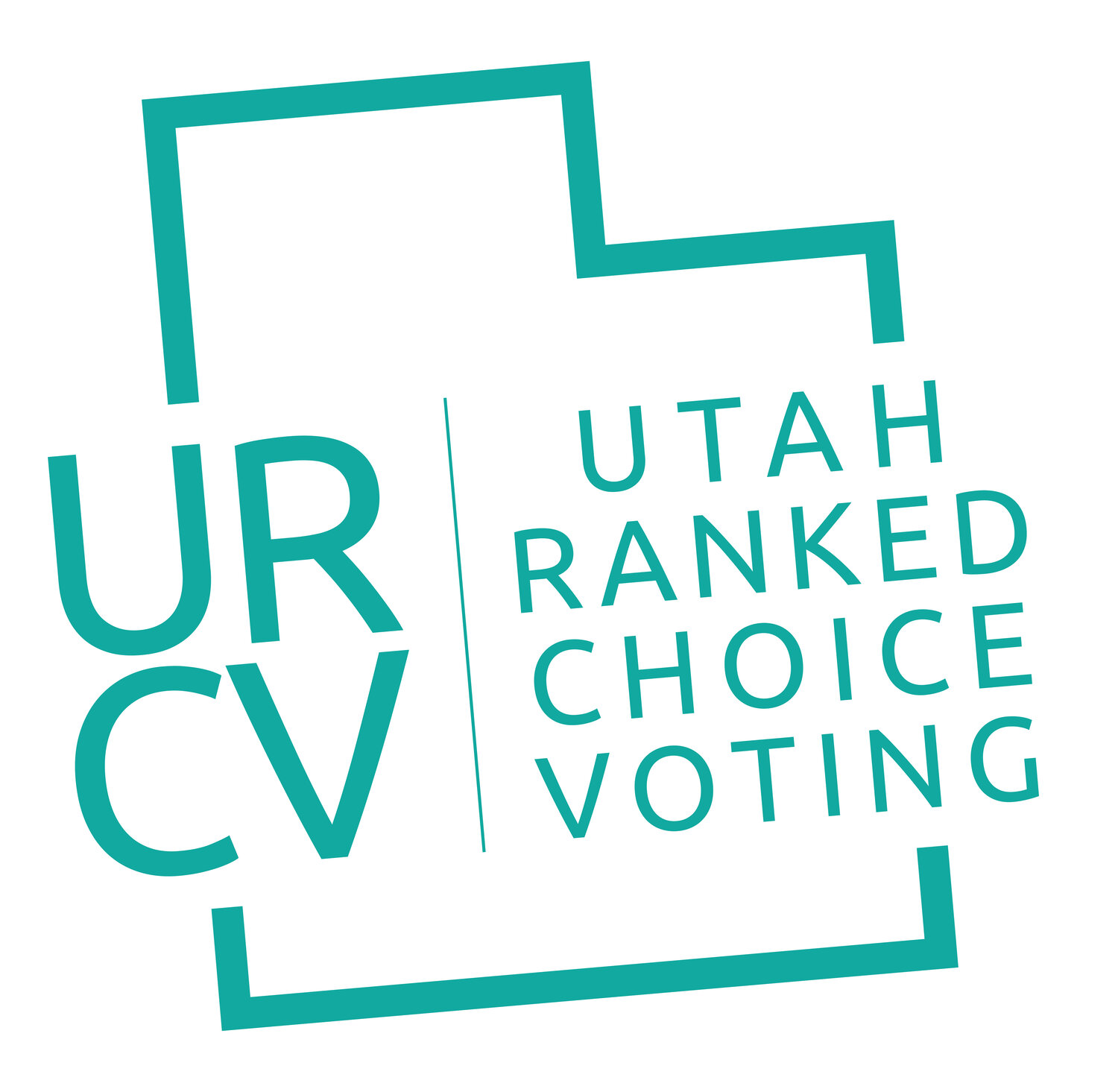WHY RANKED CHOICE VOTING?
Ranked choice voting makes elections better, faster, and cheaper.
Below are just a few of the reasons ranked choice voting makes sense for Utah cities and counties.
Fair
Makes sure everyone’s voices are included in the final round by allowing them to rank choices, thus ensuring a true majority winner.
-
Utah's current election system allows candidates to be elected into office without receiving a true majority (over 50%) of the vote.
Ranked choice voting ensures a true majority winner. The candidate with the fewest number of votes is eliminated in each round. When a voter's candidate is eliminated, second choice votes are included in the next round. This continues until the final round. By the final round, votes are distributed between the final two candidates resulting in a clear majority winner.
Every voter gets to have their vote counted in the final round. Even if a voter's first choice option is eliminated early on, the second and third choice options are included in subsequent rounds. In the final round, voters still get a say on who wins the election.
Eliminates the “Spoiler Effect”
Potential candidates don’t have to worry about “spoiling” an election by taking a percentage of the final vote.
-
The "spoiler effect" occurs when a third candidate appears to have drawn votes away from a candidate who is preferred by most voters, causing that candidate to lose in a closely contested race.
So if the top two candidates are only 2% apart, the candidate with 6% of the vote ends up taking away votes from the top two candidates skewing the results.
Ranked choice voting fixes the problem by eliminating the candidates with the lowest number of votes from the final result while including voter’s 2nd, 3rd, and 4th choices. So if a voter’s top choice is eliminated, they can still choose where their vote is counted in runoffs between other candidates.
Civil Campaigns
Candidates are more likely to run civil campaigns when second and third choice votes are at stake.
-
In any winner-takes-all-election, Utah candidates can ignore large groups of voters because they only need to focus on mobilizing and inspiring their base support. This can quickly polarize candidates, creating an "us vs. them mentality" that typically leads to campaigns riddled with pettiness and mud-slinging that distracts from discussion of issues most important to Utahns.
Ranked choice voting encourages more civil campaigns, motivating candidates to appeal to a broader spectrum of voters.
When inspired to appeal to a broader spectrum of voters, candidates are more likely to engage in issue-based conversations with other candidates, as well as potential voters. When candidates run more issue-based campaigns to receive voters’ second and third-choice votes, they engage with the entire voter population more actively and thoughtfully.
Reduced Costs
By eliminating the need for a separate runoff election, ranked choice voting saves time, money, and energy.
-
Runoff elections are costly and inefficient because they split one election into two. Not only does this mean taxpayers must fund two elections, but low voter turnout is also common often at the second election.
Ranked choice voting consolidates voter preference onto one ballot, eliminating the need for a separate runoff. This reform saves voters and the government time, money, and energy.





